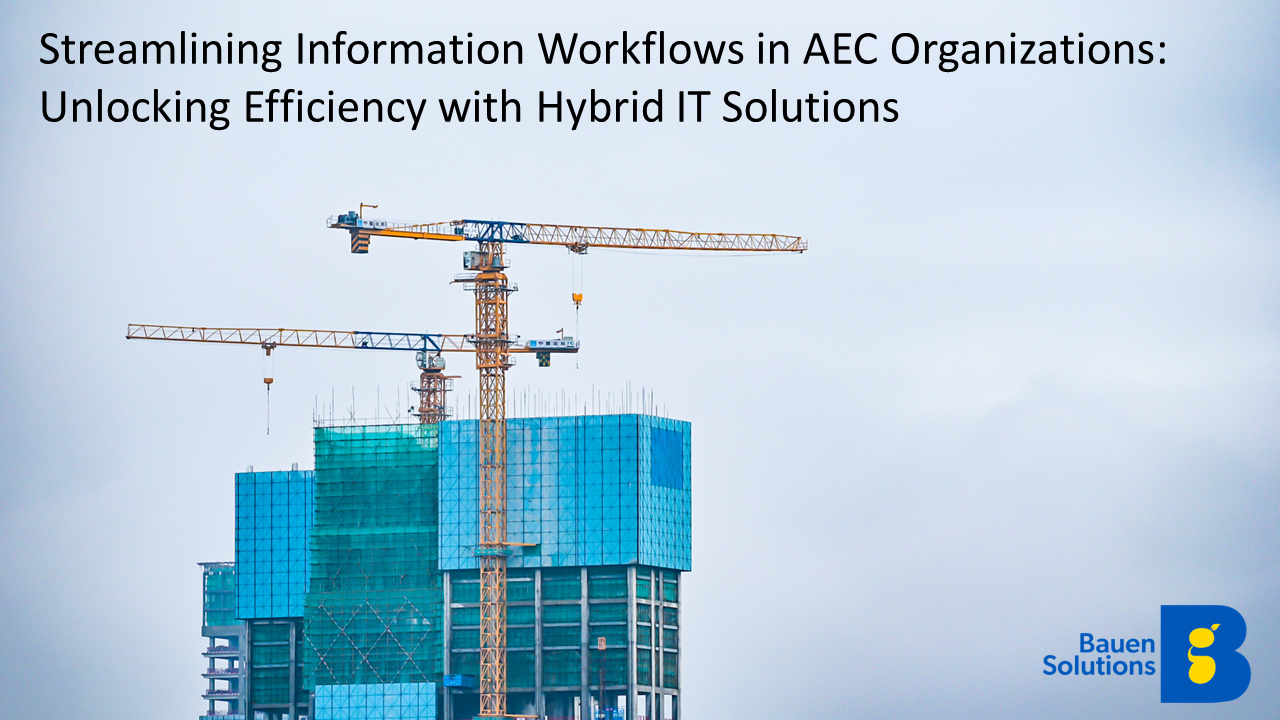Hybrid cloud computing technology is not only for businesses that have large amounts of data to store or remote work environments. Cloud-based solutions can play a significant part in helping small to mid-size companies effectively and efficiently scale processes and profitability.
People tend to think that a cloud-based solution is the only option when deciding to level up your technology infrastructure. However, environments like the built-in hybrid offering from Microsoft Azure, a hybrid cloud solution enables businesses to reap the benefits of cloud computing technology and traditional systems.
Let us explore why a hybrid cloud may be the best fit for your business.
Building a Hybrid Cloud Infrastructure
Microsoft Azure makes it relatively easy to navigate the world of cloud-computing and adopt cloud-based solutions. Azure is an expansive collection of cloud computing services that allows you to design, deploy, and manage an extensive global network.
It will enable companies to ease into digital transformation while revolutionizing the way they do business. Your company can choose from various features, including compute, analytics, storage, and networking. Your development team can create cloud-native applications of a flexible platform.
Azure’s inherent flexibility also offers businesses to choose a hybrid cloud solution, enabling them to innovate from anywhere while utilizing on-premises systems.
An Azure hybrid cloud is a computing environment for your business that combines the public cloud’s power and on-premises infrastructure. This solution includes the private cloud by allowing data and applications to be shared between the two systems.
With greater flexibility, an Azure hybrid cloud will provide you the tools to scale computing resources and more opportunities to take advantage of cloud innovation while leveraging an on-premises environment.
Companies choose it because the business benefits on hybrid cloud solutions are several, including, costs, reliability and a robust infrastructure.
Building a Resilient Cloud Infrastructure
It is vital to understand the five pillars that comprise a resilient cloud infrastructure. The five pillars include operating systems, application platforms, data platform, security, and identity. These five aspects are the foundation of the Azure hybrid cloud.
They enable cloud systems, especially hybrid systems, to perform at a high-level, be resilient against ever-evolving cyberthreats, and allow users to build and deploy a consistent experience.
Exploring the Benefits of a Hybrid Cloud Environment
Once you build a robust, hybrid cloud infrastructure with Azure, your business can begin to reap the benefits of this dynamic environment. The advantages of a hybrid cloud span far and wide but ultimately have a direct impact on your business’ adaptability, bottom-line, and security. Below are a few of the advantages your company may experience because of adopting a hybrid cloud environment.
Maintain Flexibility
One of the most overused benefits, for a reason, in the world of cloud computing is flexibility. The hybrid cloud enables users to make various choices on how to deliver your technology services best. The hybrid environment means you can take advantage of each delivery method such as public, private, on-premises, etc. while avoiding the risks of only choosing one.
Flexibility does not just refer to the pliability of the specific operating system. Still, it also refers to companies’ ability to adjust processing power and storage on-demand and readily adapt to the needs of changing markets.
Reduce Costs
Most hybrid cloud management solutions have options where you only pay for the extra cloud space once you use it. The hybrid cloud is not guaranteed to save your business money automatically. Still, compared to on-premises or standalone cloud purchases, you may see a reduction in dollars and time spent.
Microsoft offers an Azure pricing calculator for businesses to estimate the costs of adopting new cloud-computing solutions and hybrid environments.
Multiple Failover Options
Not all businesses are comfortable with having their private files living in the cloud, especially with rising concerns about net neutrality and the ever-present threat of cyberattacks. The fear usually stems from the fact that there is a single point for failure. With a hybrid cloud, you have multiple failover options available, protecting you against a natural disaster or technical glitch.
Enhanced Security and Compliance
Although most cloud providers have significant security measures, the cloud does not always feel secure while compliance issues exist for some industries. When this is the case, the hybrid cloud security can be the more appropriate option, offering cloud computing services with an on-premises system’s safety and security.
Working with the Experts
The design, development, and deployment of a cloud computing solution is not the most straightforward process, especially for the small to mid-size businesses that lack the technology infrastructure and expertise.
Finding a technology partner to help you decide if a hybrid cloud environment is the best solution for your company may be the most logical next step.
Bauen Solutions experts are ready to help you identify your goals, paint a clear picture of your vision, and explain the various cloud offerings on the market, including built-in hybrid solutions like Microsoft Azure. Bauen’s team is ready to support your team during cloud application development and migration, deployment, and future hybrid cloud management.





